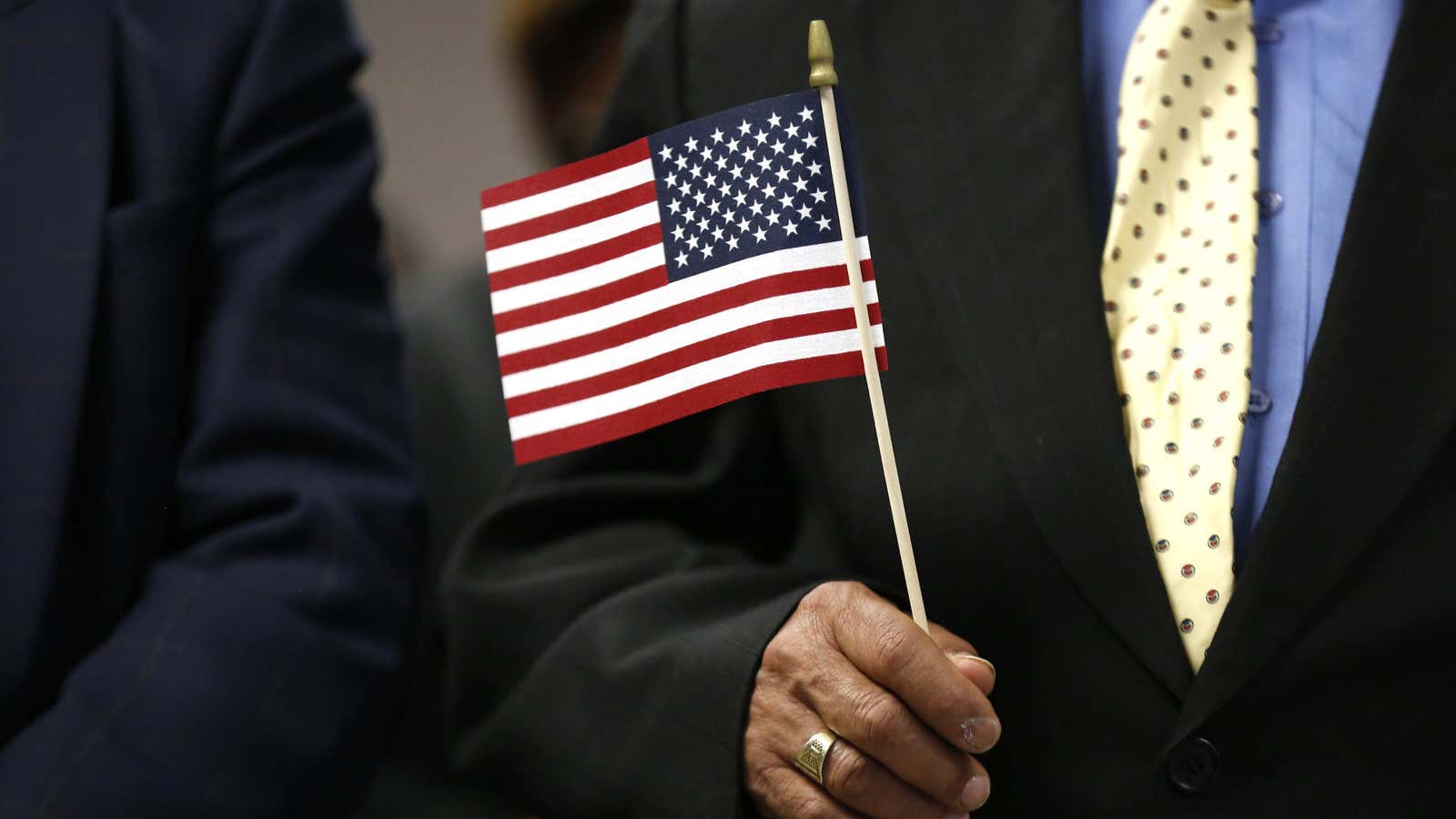For the second time in two years, the Donald Trump administration has ruled out expedited approvals for H-1B visas.
On March 20, the US Citizenship and Immigration Services (USCIS) announced that it has temporarily halted the premium processing facility for the H-1B visa, which allows applicants to fast-track the visa granting process, from the usual three to six months to 15 days, for an additional fee of $1,225.
The decision comes less than two weeks before USCIS begins accepting applications for fiscal year 2019 (October 2018 to September 2019). The suspension will last until Sept. 10, it said.
“This temporary suspension will help us reduce overall H-1B processing times,” USCIS said. “By temporarily suspending premium processing, we will be able to…process long-pending petitions, which we have currently been unable to process due to the high volume of incoming petitions and the significant surge in premium processing requests over the past few years.”
This halt could hit Indian IT outsourcing companies like Infosys and Tata Consultancy Services (TCS) which are among the biggest beneficiaries of the H-1B visa. With the announcement coming so close to the application date, the resource planning by these companies for the coming year may be thrown off track. They may even struggle to fill up positions in the US with local hiring in a short time.
The move could impact top Silicon Valley players such as Microsoft and Google as they, too, rely on the H-1B.
However, given the Trump administration’s recent record, most firms may have prepared for the worst. Since he took office in January 2017, the president has made several moves to make the H-1B application process tougher.
Last year, too, his government had temporarily stalled premium processing, lifting the suspension only in October.
In February this year, it tightened the rules around third-party contract work, calling for additional documents and proof. Just over a year ago, a USCIS guidance issued to visa officers made the qualifying criteria for computer programmers more stringent. At that time, it also launched targeted workplace visits to check visa frauds and abuse.
